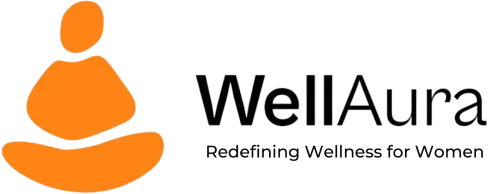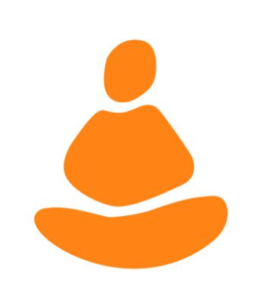While juggling various responsibilities, women often forget to prioritise their own health. Their bodies have unique nutritional needs at different stages of life, requiring specific vitamins and minerals. Addressing these changing needs during phases such as menstruation, pregnancy, and menopause is crucial, as they can tremendously impact the overall quality of life.
Nutritional deficiencies can lead to issues like hormonal imbalances, skin problems, anaemia, and osteoporosis. While we often focus on getting enough vitamins from various sources, essential minerals are frequently overlooked. Here are 10 absolutely necessary minerals for woman to maintain a healthy and well-balanced lifestyle.
What Are Minerals?
Minerals are important nutrients that your body requires to function at optimum levels. Unlike organic vitamins, which can be broken down by heat, air, or acid, minerals are inorganic elements that come from the earth, soil, and water. Plants and animals absorb them, and then we get it through our diet. These fall under two categories:
- Macrominerals: These are needed in larger amounts and include calcium, magnesium, sodium, potassium, phosphorus, sulfur, and chloride.
- Trace Minerals (Microminerals): These are required in smaller quantities but are still vital, including iron, zinc, copper, selenium, iodine, manganese, and fluoride.
10 Absolutely Necessary Minerals For Women
Minerals are crucial for everyone, but the unique health needs of women make getting the right minerals even more important. From menstruation to pregnancy and menopause, a woman’s body undergoes various changes throughout her life that require specific nutritional support. Here are minerals for women that are vital for maintaining overall health and well-being:
Also Read: Top 10 Essential Vitamins For Women
#1 Calcium: Supports Bone Health and Prevent Osteoporosis
We all know calcium is vital for maintaining healthy teeth and bones, especially for women approaching menopause, as bone density tends to decrease during this stage. However, calcium also supports healthy muscles, nerves, and heart function, making sufficient intake of this mineral crucial throughout life.
The recommended daily calcium intake for women:
| Age Group | Recommended Daily Intake |
| Girls (9 to 18 years) | 1,300 mg per day |
| Adult Women (19 to 50 years) | 1,000 mg per day |
| Postmenopausal Women (51+) | 1,200 mg per day |
Best Sources of Calcium: Dairy products (milk, yogurt, cheese), leafy greens (kale, spinach), fortified plant-based milk, almonds.
#2 Iron: Boosts Energy and Prevent Anaemia
Women are more prone to iron deficiency anaemia due to monthly blood loss during menstruation. Iron is one of the most critical minerals for women, helping to produce red blood cells and transport oxygen throughout the body. Adequate iron intake can prevent fatigue, weakness, and impaired cognitive function.
The recommended daily Iron intake for women:
| Age Group | Recommended Daily Intake |
| Girls (14 to 18 years) | 15 mg per day |
| Adult Women (19 to 50 years) | 18 mg per day |
| Pregnant Women | 27 mg per day |
| Postmenopausal Women (51+) | 8 mg per day |
Best Sources of Iron: Lean red meat, poultry, tofu, lentils, beans, dark green leafy vegetables, fortified cereals.
#3 Magnesium: Helps Relax and Revitalise
Magnesium is an electrolyte necessary for many bodily functions. A lack of magnesium often leads to weakness, fatigue, heart palpitations, and menstrual cramps. It helps manage blood pressure and plays a vital role in bone health. A study reported that magnesium supplementation is effective in preventing dysmenorrhea, premenstrual syndrome, and menstrual migraine and in preventing climacteric symptoms.
The recommended daily Magnesium intake for women:
| Age Group | Recommended Daily Intake |
| Girls (14 to 18 years) | 360 mg per day |
| Adult Women (19 to 30 years) | 310 mg per day |
| Adult Women (31 years and older) | 320 mg per day |
| Pregnant Women | 350-360 mg per day |
| Breastfeeding Women | 310-320 mg per day |
Best Sources of Magnesium: Nuts (almonds, cashews), seeds (pumpkin seeds), whole grains, dark chocolate, leafy greens.
#4 Zinc: Builds Immune Health and Enhances Skin
Zinc is one of the most critical minerals for women. It is crucial for adequately functioning the immune system, wound healing, healthy skin, and age-related macular degeneration. Zinc supplements are also seen to have a positive effect on different parameters for women with PCOS, especially those related to insulin resistance and lipid balance.
The recommended daily Zinc intake for women:
| Age Group | Recommended Daily Intake |
| Girls (14 to 18 years) | 9 mg |
| Adult Women (19 years and older) | 8 mg per day |
| Pregnant Women | 11 mg |
| Breastfeeding Women | 12 mg per day |
Best Sources of Zinc: Oysters, red meat, poultry, beans, nuts, whole grains.
#5 Iodine: Supports Fetal Brain Growth and Thyroid Health
Iodine is especially important for women during pregnancy as it plays a key role in the healthy brain development of the fetus. Additionally, this mineral is vital for the production of thyroid hormones, which control metabolism, energy, and overall growth. Women are more prone to thyroid disorders, making it crucial to maintain adequate iodine levels for proper thyroid function.
The recommended daily Iodine intake for women:
| Age Group | Recommended Daily Intake |
| Girls (14 to 18 years) | 150 mcg per day |
| Adult Women (19 years and older) | 150 mcg per day |
| Pregnant Women | 220 mcg per day |
| Breastfeeding Women | 290 mcg per day |
Best Sources: Iodized salt, seaweed, fish, dairy products, eggs.
#6 Potassium: Helps the Functioning of the Heart, Kidney and Muscles
You need potassium for the normal functioning of body cells. These cells then help regulate the heartbeat, control blood pressure, reduce the risks of kidney stones, and generate nerve impulses. Another vital function of potassium is to excrete excess sodium in the urine, which maintains the water balance in the body.
The recommended daily Potassium intake for women:
| Age Group | Recommended Daily Intake |
| Girls (14 to 18 years) | 2,300 mg per day |
| Adult Women (19 years and older) | 2,600 mg per day |
| Pregnant Women | 2,900 mg per day |
| Breastfeeding Women | 2,800 mg per day |
Best Sources of Potassium: Bananas, sweet potatoes, avocados, beans, spinach.
#7 Selenium: Improves Immune System, Fertility and Mental Well-Being
Though one of the important minerals for women, selenium is often overlooked. It is necessary for many bodily functions, including DNA synthesis, reproduction, protection from oxidative damage, infection, and thyroid hormone metabolism. This mineral also plays a crucial role in improving cognitive performance.
The recommended daily Selenium intake for women:
| Age Group | Recommended Daily Intake |
| Girls (14 to 18 years) | 55 mcg per day |
| Adult Women (19 years and older) | 55 mcg per day |
| Pregnant Women | 60 mcg per day |
| Breastfeeding Women | 70 mcg per day |
Best Sources of Selenium: Brazil nuts, fish (tuna, sardines), eggs, whole grains.
#8 Copper: Absorbs Iron and Supports Bone Health
This is one of the most essential minerals for women because it absorbs iron in the body, making it crucial for combating fatigue and improving stamina. Moreover, women over 40 must focus on proper copper intake, as it also supports the formation of red blood cells, collagen production, and bone health.
The recommended daily Copper intake for women:
| Age Group | Recommended Daily Intake |
| Girls (14 to 18 years) | 890 mcg per day |
| Adult Women (19 years and older) | 900 mcg per day |
| Pregnant Women | 1,000 mcg per day |
| Breastfeeding Women | 1,300 mcg per day |
Best Sources of Copper: Shellfish, nuts (cashews, almonds), seeds, whole grains, dark chocolate.
#9 Chromium: Controls Blood Sugar Levels
Chromium is vital in regulating blood sugar levels by enhancing insulin action. Adequate chromium intake can help support healthy metabolism and stabilize energy levels, making it especially beneficial for women with insulin sensitivity issues.
The recommended daily Chromium intake for women:
| Age Group | Recommended Daily Intake |
| Girls (14 to 18 years) | 24 mcg per day |
| Adult Women (19 years and older) | 25 mcg per day |
| Pregnant Women | 30 mcg per day |
| Breastfeeding Women | 45 mcg per day |
| Women (51 years and older) | 20 mcg per day |
Best Sources of Chromium: Broccoli, green beans, whole grains, nuts, and lean meats.
#10 Phosphorus: Improves Energy and Bone Strength
Women face a greater risk of osteoporosis, particularly after menopause, because of decreased estrogen levels. Phosphorus, alongside calcium, is vital for building strong bones and teeth, helping to lower the risk of fractures. Additionally, phosphorus supports energy production and plays a key role in filtering waste through the kidneys.
The recommended daily Phosphorus intake for women:
| Age Group | Recommended Daily Intake |
| Girls (14 to 18 years) | 1,250 mg per day |
| Adult Women (19 to 50 years) | 700 mg per day |
| Pregnant Women | 700 mg per day |
| Breastfeeding Women | 700 mg per day |
Best Sources of Phosphorus: Dairy products, meat, fish, poultry, nuts, beans.
Get a Women Wellness Test at WellAura
Incorporating the right minerals for women into the diet is vital for supporting women’s health at every stage of life. These essential minerals for women help overall well-being by boosting energy and mood, strengthening bones, balancing hormones, and improving mental wellness. Don’t overlook the importance of these nutrients—ensuring you get enough can make a significant difference in your quality of life.

Curious if you’re getting enough essential minerals? Take charge of your health and get a comprehensive Women’s Wellness Test at WellAura today! Gain personalised insights into your mineral health and overall well-being. Contact us now to book your appointment!
FAQs
Why are minerals for women important?
Minerals support various bodily functions, from building strong bones and regulating hormones to supporting mental well-being and boosting energy levels. Women’s bodies have unique nutritional needs due to life stages like menstruation, pregnancy, and menopause, making adequate mineral intake essential for overall health.
Can I get all the necessary minerals from my diet alone?
A diet that includes plenty of fruits, vegetables, whole grains, lean proteins, and dairy typically provides most essential minerals. However, certain factors like dietary limitations, health conditions, or absorption issues may prevent some women from meeting their mineral needs through diet alone. In these cases, using supplements or consuming fortified foods can help fill the gap.
What happens if I don’t get enough essential minerals?
Deficiency in essential minerals can lead to a variety of health problems, such as osteoporosis (low calcium), anaemia (low iron), fatigue (low magnesium), and hormonal imbalances (low zinc). Ensuring an adequate intake of these minerals helps prevent these issues and supports a healthy lifestyle.


